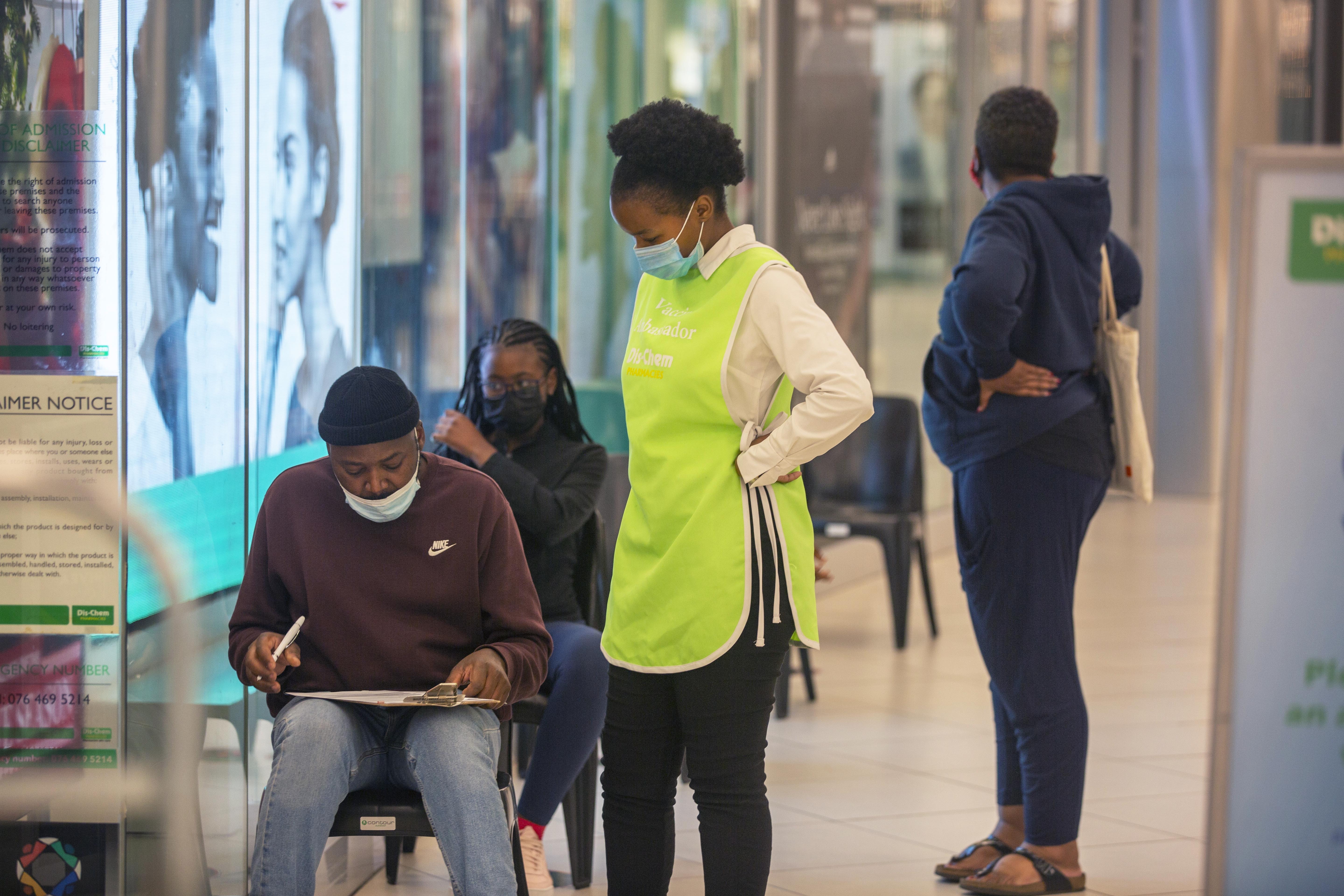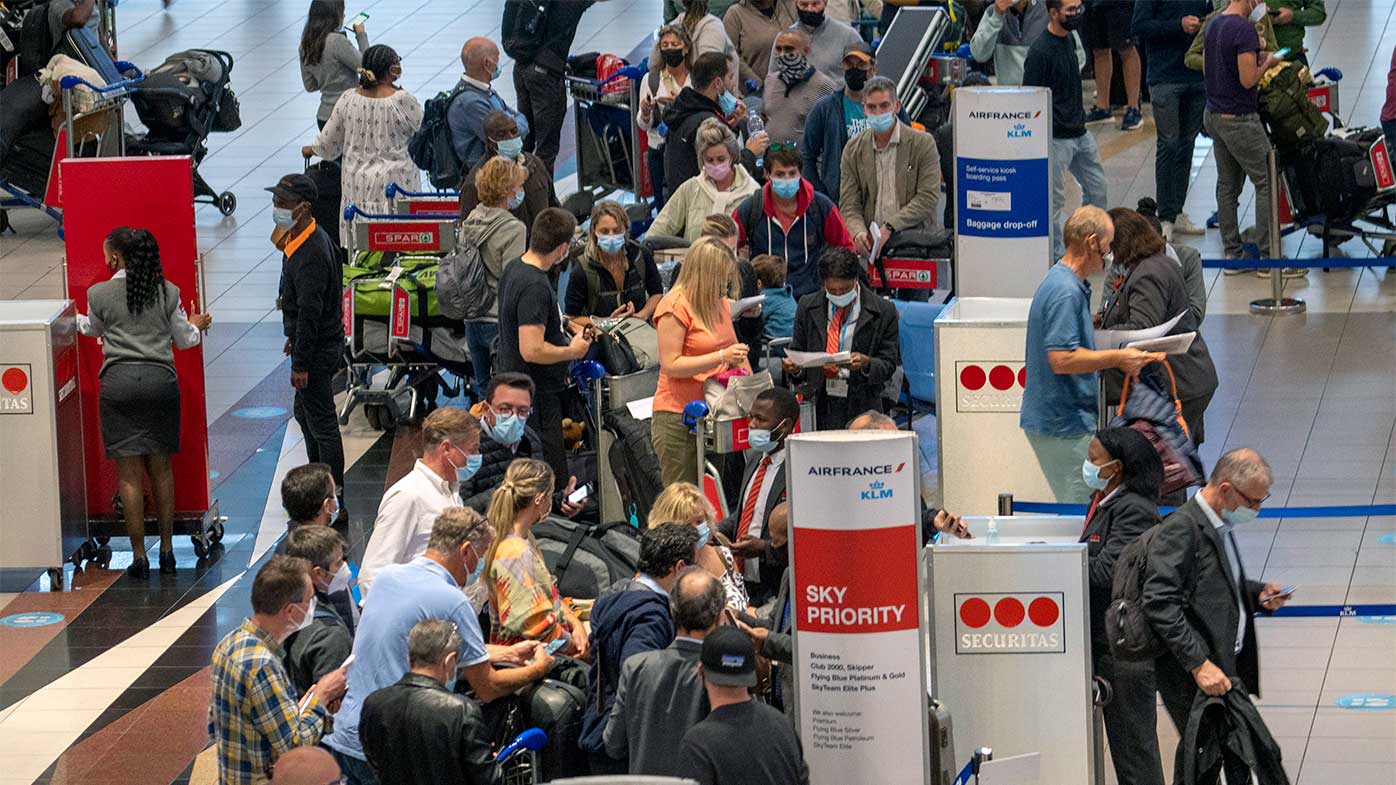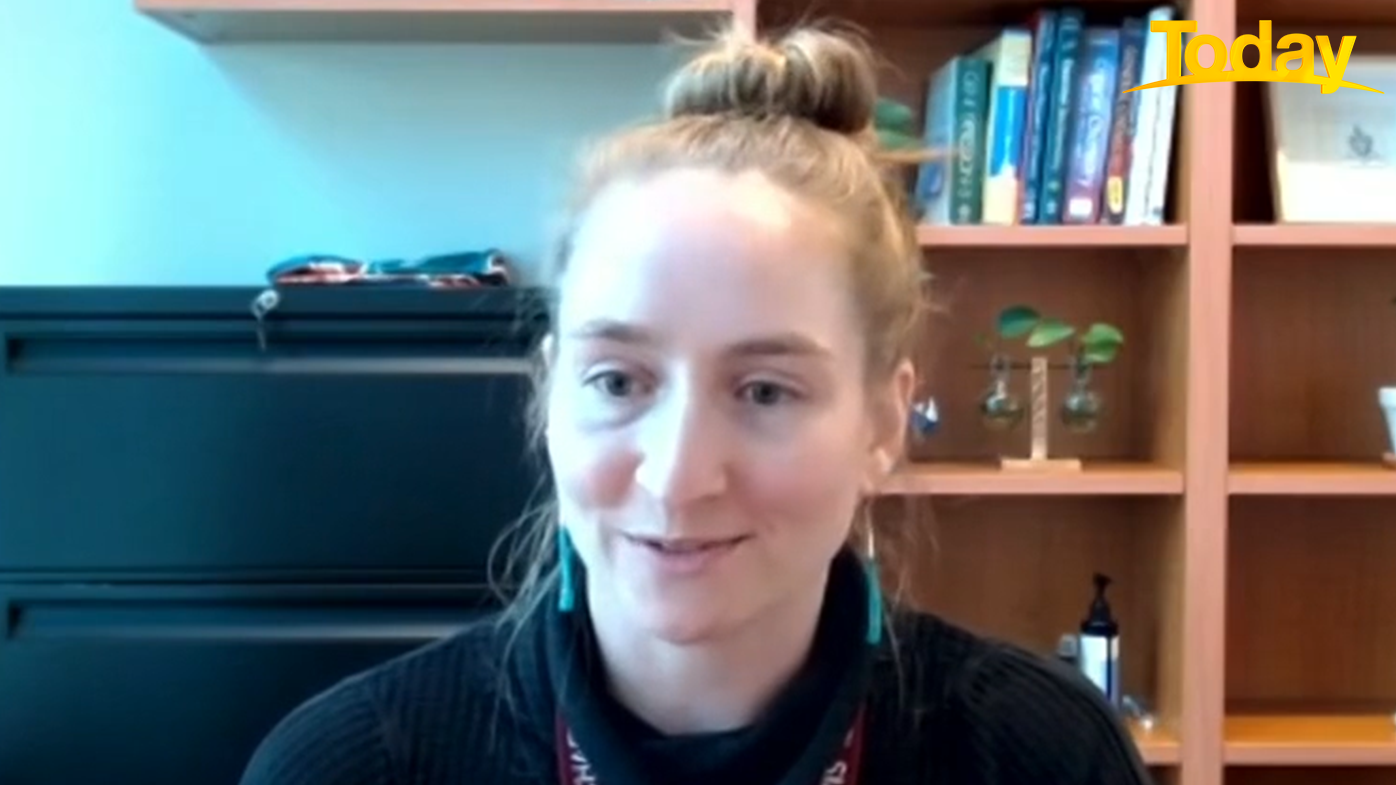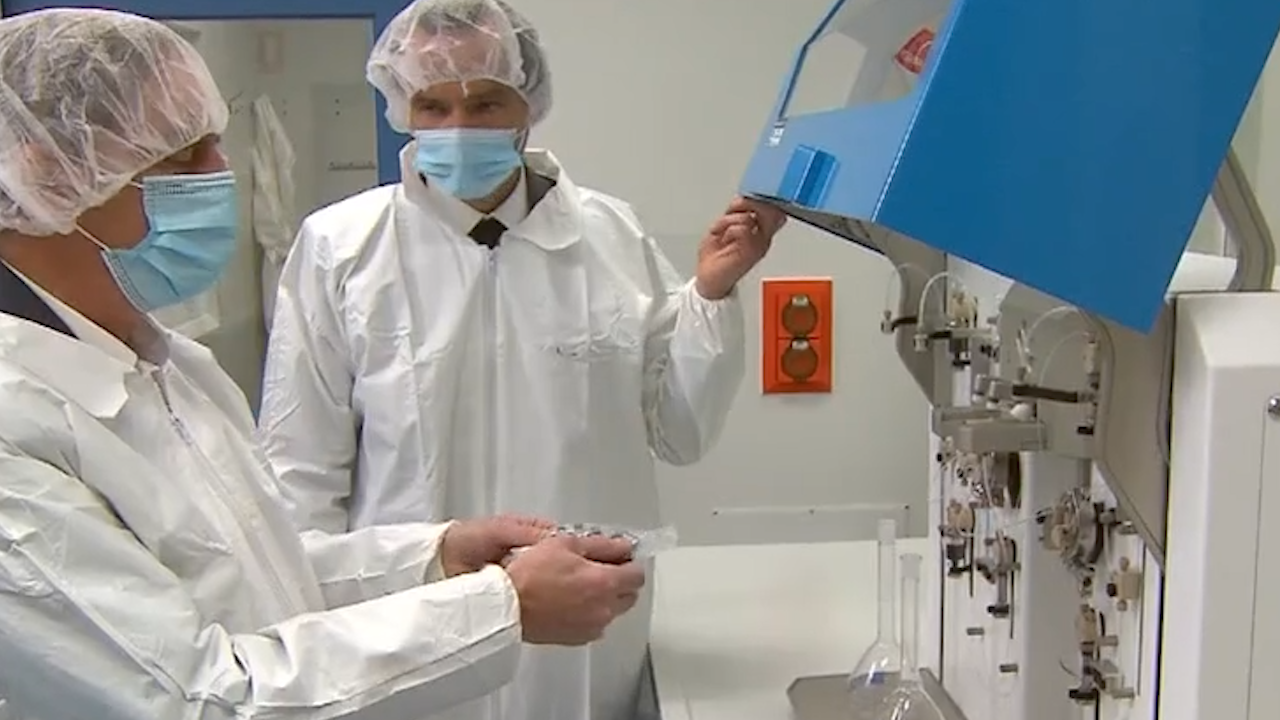An expert has warned to take the new COVID-19 variant with "a grain of salt" as concerns grow over the transmissibility.
South African scientists identified a new variant of COVID-19 this week that has been declared a variant of concern.
The new variant named Omicron has spread to other countries including Botswana, Hong Kong, Israel and Belgium.
EXPLAINER: What is the new COVID-19 variant in South Africa

Associate Professor Anna Blakney, from the University of British Columbia, said people shouldn't be alarmed by the new variant until there is concerning data.
"I think until we see the data on how infectious or, you know, what the properties of the new variant are there's no need to worry," she said.
"I think we need to take every new variant with a grain of salt."
The World Health Organisation has classified omicron as a highly transmissible virus of concern, the same category that includes the delta variant.
Countries around the world have begun to ban travel from South Africa to prevent the spread of the variant.

Authorities are concerned as the virus is moving quickly but Professor Robert Booy said more investigation into the spread of the variant is needed.
"We're not shocked or worried to the extent that we think this is definitely going to be a problem," Mr Booy said.
"We need to do more investigation, do the science, work out how well this virus is spreading."
READ MORE: Experts warn wet weather may bring more mice amid fears of new plague

Dr Blakney said mRNA vaccines can be adapted quickly for new variants and wasn't concerned about omicron.
"I think if there's a variant that's really concerning we will be able to create a new vaccine do the clinical testing for it and get it distributed," Dr Blakney said.
"I think we're actually in a pretty good position with being able to address new variants."
Mr Booy said testing is currently underway to adapt vaccines to offer protections against omicron.
The testing can help understand the transmissibility of the variant, but "real-world evidence" is needed.
"They use a thing called pseudo varions, viruses used in the laboratory to check whether the virus is likely to evade human immunity, the antibodies that we make," Mr Booy said.
Despite quickly being able to develop the vaccine for new variants, Dr Blakney added it takes time to go through testing for the vaccine for it then to be deployed.
Mr Booy said Australia needs to aid South Africa to vaccinate the country to prevent future variants.
"If we're to save ourselves, we have to help our neighbours. We have to be safe because everyone's safe, not just because everyone in Australia is safe," he said.

She also said mRNA vaccines used to protect against COVID-19 could be used to prevent other diseases.
The technology could be used to cure cancer, Dr Blakney said.
"Now we see that we have safety and efficacy for a virus, we can see where else we can apply the technology," she said.
"Are there other vaccines with diseases with unmet clinical needs or other opportunities such as cancer vaccine or monoclonal anti-virus technology?"
READ MORE: Stocks and oil plunge as new COVID-19 variant fears slam global markets

Dr Blakney said before COVID-19 the trials for mRNA vaccines were slow but now the technology can be "mobilised quickly" and could be used to cure other diseases.
"It only takes a matter of days to make a new mRNA vaccine. Because of that you can scale it up, get it into the clinic faster," she said.
"Because it's made synthetically it doesn't rely on cells you can also scale it up for billions of doses much more easily than you can traditional vaccines."
